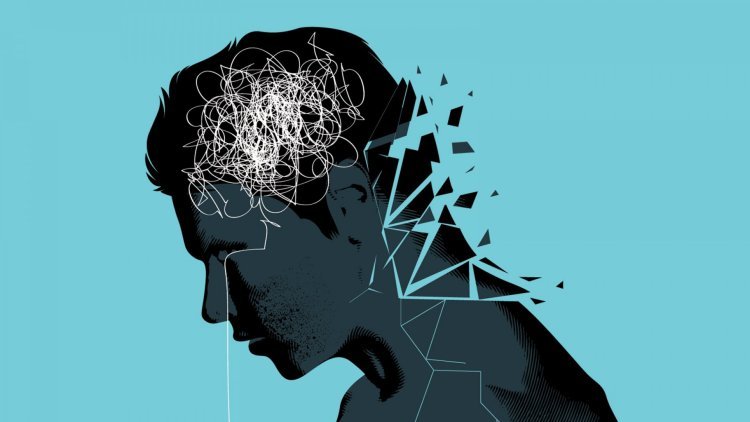How To Treat Anxiety
Anxiety refers to anticipation of a future concern and is more associated with muscle tension and avoidance behavior. Fear is an emotional response to an immediate threat and is more associated with a fight or flight reaction – either staying to fight or leaving to escape danger.

Anxiety: What is it?
The human body's natural response to stress is anxiety. However, if you experience anxiety often and it rarely goes away, this is something to be aware of as it may be a sign of a condition. A person suffering from a problem may exhibit modest symptoms, such as an elevated heart rate and anxiety or fear, or more severe ones, such as panic attacks.
What might be the cause?
You might feel a typical, transient amount of worry when put in difficult situations or asked to step outside of your comfort zone. On the other hand, if these symptoms occur frequently and don't go away, it can indicate a condition.If you experience anxiety more often than not, it may be a sign that your stress levels have escalated to the point of an anxiety disorder.
Disorder prevalence in the United States.
If you experience anxiety more frequently than is deemed normal and it interferes with your ability to perform specific tasks, you may have an anxiety disorder. The Anxiety and Depression Association of America estimates that 40 million Americans suffer from anxiety problems annually. The Diagnostic and Statistical Manual of Mental Disorders lists a few main categories of anxiety disorders, each with distinct signs and characteristics. Apart from the anxiety disorders mentioned below, other possible diagnoses include specific phobias, agoraphobia, substance/medication-induced anxiety disorder, selective mutism, and separation anxiety disorder.
Anxiety disorders
Anxiety disorders such as panic disorder can lead to panic attacks, which can occur unexpectedly and have a wide range of individual symptoms. Heart palpitations, an abnormally high heart rate, nausea, vomiting, and/or a powerful, debilitating sense of anxiety are all possible side effects of panic attacks. Those who have it may find this difficult since they may begin to feel as though there is a bodily issue with them.
Anxiety disorders related to social situations
Anxiety resulting from regular social contacts is known as social anxiety disorder, which can make it difficult to maintain relationships or do job-related tasks. An extreme worry about how one will be seen by others when they are around them can occasionally cause someone to completely avoid social interactions. Being unable to speak out or go out is what sets this disease apart from simple shyness.
Anxiety disorders in general
One of the most prevalent anxiety disorders is generalized anxiety disorder (GAD), commonly known as generalized anxiety disorder. It can make you worry about both minor and major things and events in your life on a daily basis. This may disrupt your schedule and prevent you from completing crucial tasks. It may also result in both mental and physical symptoms. The Diagnostic and Statistical Manual of Mental Disorders states that in order for a person to be diagnosed with generalized anxiety disorder, their symptoms have to cause Typical signs and symptoms
While the precise form of anxiety illness may have a varied effect on you, many of them have common symptoms, such as
Breathing issues
Modifications to sleep habits
Unable to focus
Not able to have a restful night's sleep
Typical causes
Anxiety and its symptoms are probably not caused by a single thing, but a variety of things can influence them. Your genes. Your risk of getting an anxiety disorder is increased if other members of your family suffer from anxiety or have been diagnosed with a disorder. underlying illnesses. Some individuals who struggle with anxiety disorders or symptoms may also be dealing with other medical issues. They might feel anxious about their health, or it might be related to a medication or treatment they are receiving. For those who have severe illnesses or are terminally ill, this might be the case.
How to handle symptoms
Although there isn't a known cure for anxiety, there are a number of therapies for anxiety disorders that can help people feel less anxious. You don't have to go through this alone if you believe you have an anxiety problem. Medication for anxiety, such as selective serotonin reuptake inhibitors, psychological counseling, such as cognitive behavioral therapy, and lifestyle modifications, like emphasizing exercise and good sleep hygiene, can all be effective treatments. To achieve the best outcomes, different persons might need to use one or several methods of treatment. Remember that as you seek help for your anxiety problem and work toward receiving psychiatric treatment.
Modifications in lifestyle
You can mitigate the consequences of your anxiety illness by adopting certain lifestyle practices, such as reducing stress and enhancing the quality of your sleep. Eating a healthy diet and avoiding stimulants like alcohol and coffee might also help you feel less jittery. Regular exercise can also help lower anxiety levels because it involves a lot of physical activity. Stretching and exercise, even in little doses, can help alleviate the symptoms of anxiety disorders. Anxiety has also been demonstrated to be reduced by meditation. Think about engaging in mindfulness meditation, which focuses on raising awareness of the present moment. In one trial, researchers discovered that a mindfulness-based therapy for anxiety disorders was just as successful at reducing symptoms as the selective serotonin reuptake inhibitor escitalopram.
Herbal Cures
Home remedies can include a range of natural treatments and methods that can aid with anxiety management and wellbeing promotion. Over time, long-term chamomile therapy and other natural medicines might help reduce anxiety symptoms. But using supplements to treat anxiety is not FDA-approved, and you should only use them under a doctor's supervision.
What's Your Reaction?










![Wireless Connectivity Software Market Size, Share | Statistics [2032]](https://handyclassified.com/uploads/images/202404/image_100x75_661f3be896033.jpg)



